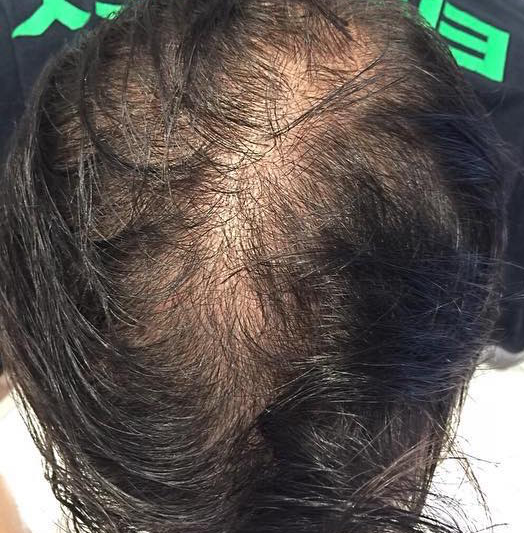Home / Hair Loss / Traction Alopecia
Traction Alopecia
Traction alopecia is a type of hair loss caused by a constant pulling on the hair from its follicle. It is most commonly seen in women who wear weaves, tight braids and hair extensions, but also occurs in those who consistently wear their hair pulled back tightly from their scalp. For instance, ballerinas and gymnasts, or those who simply like to tie their hair up in tight ponytails or buns. Traction alopecia can also be the result of excessive or harsh brushing and/or backcombing.
Traction alopecia is not limited to women and it can also occur in men. Philip Kingsley trichologist, Jane Martins, says that traction alopecia is currently a particular concern for men who wear buns. This is because men with buns tend to wear their hair reasonably high up on their heads, scraped back and tied very tightly. To prevent traction from tight buns, she suggests wearing the bun looser and lower down.
Traction alopecia is usually initially seen on the front hairline and also on the margins of the scalp, where most traction is exerted. However, over time the traction can move further back as new hairs are put under strain. This can cause significant recession of the hairline. Traction from too-tight styles can also result in breakage along the temples and front of the scalp, which makes the management of hair much more difficult. If you tie your hair up with tight rubber bands, the bands may cut into the hair shaft and fracture strands throughout your mid-lengths.
At first, traction alopecia from hair extensions, braids, weaves and tight hairstyles is reversible; you can stop styling your hair under traction and your hair will grow back. However, over time irreversible damage can be done if the hair starts to grow back and is pulled out again and again. This happens because the constant pulling of the hair eventually distorts and atrophies [wastes away] the follicle. This eventually weakens the growth of the hair and causes it to grow back finer and shorter. In severe instances, the follicle can become permanently scarred so that hairs are not able to grow at all.
Learn more about:
Why Nina Ross Hair Therapy?
State of the art + PERSONALIZED TREATMENTS
Founder of NRHT - Shanina "Nina Ross" Lassiter
Transformations
View Real Patient Before & Afters
Reviews
see testimonials from current clients
Get answers from a specialist











